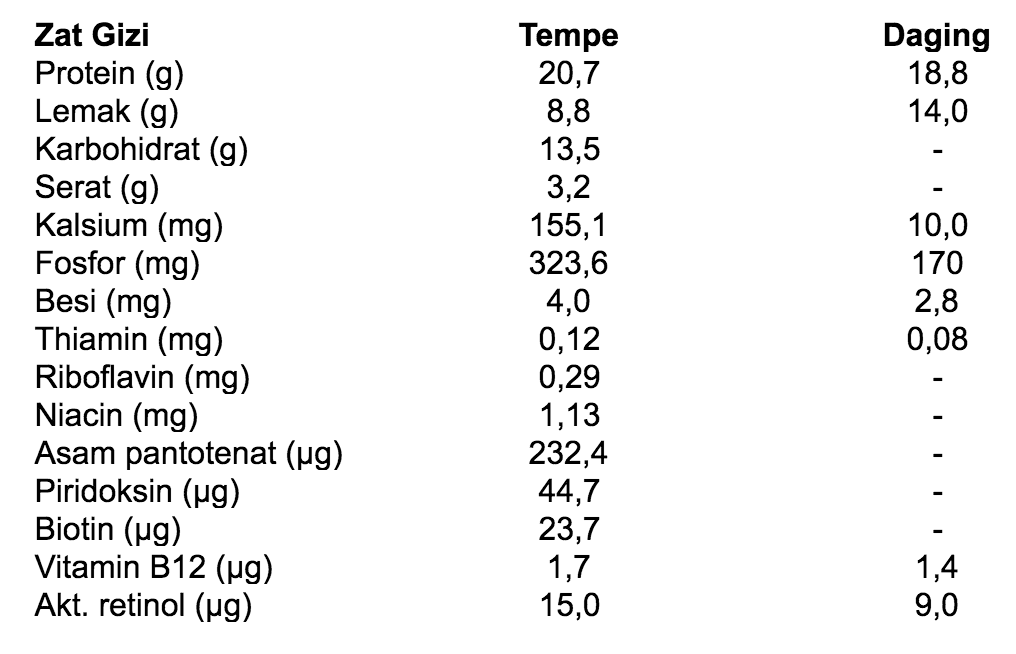Contents:
- Medical Video: What is Tempeh? / The Top 5 Benefits of Eating Tempeh
- Nutrient content in tempeh
- Benefits of tempeh for our body
- 1. A source of protein that is richer than meat
- 2. A source of calcium that is equivalent to cow's milk
- 3. The only source of vegetable vitamin B12
- 4. As an antioxidant
- 5. Healthy for babies and those on a diet
Medical Video: What is Tempeh? / The Top 5 Benefits of Eating Tempeh
Tempe is a food that is definitely no stranger to our eyes, ears, tongue, nose and skin. These fermented foods from soybeans have accompanied our lives as Indonesians. The distinctive taste of tempe and a very different structure from knowing this is not only cheap and makes it addictive, but there are many things that can make you amazed to hear the nutritional information from tempeh.
Nutrient content in tempeh
Tempe or in English "tempeh" turned out to have been investigated for its contents not only by Indonesians, but even Caucasians out there. The number of traditional foods that experience fermentation does not reduce the image of tempeh as the most accepted and researched product (Hachmeister & Fung, 2008). According to Hermana, Mien Karmini, and Darwin Karyadi (1996), here is a comparison of nutrition between tempeh and meat in 100 grams of presentation:
Benefits of tempeh for our body
1. A source of protein that is richer than meat
It can be seen that the protein content in tempeh can be compared with the content in meat, but it contains more protein. The nutritional content of tempeh is proven to be of better quality than soybeans, because the levels of protein that dissolves in water will result in increased proteolytic enzyme activity (Widianarko, 2002). Proteolytic enzymes can break long chains of proteins into substances that can be digested by the body.
In addition, tempeh contains less fat, carbohydrates, fiber, calcium, phosphorus, iron, thiamine, riboflavin, niacin, pantothenic acid, pyridoxine, biotin, vitamin B12, and act of retinol which is far more than meat.
2. A source of calcium that is equivalent to cow's milk
Research conducted by researchers from Kuala Lumpur, Malaysia, revealed an amazing thing about this research on tempeh. The results of this study state that calcium in four pieces of tempeh can be juxtaposed with cow's milk.
3. The only source of vegetable vitamin B12
Tempeh contains 1.7 µg or 0.0017 mg of vitamin B12 which makes tempe the only source of vitamin B12 in vegetable sources. This content is enough for someone every day. Now vegetarians and vegans need not be afraid to lose vitamin B12, which if deficient can cause dizziness, weakness, fatigue, yellowing of skin, etc.
4. As an antioxidant
Not only does it have nutrients that can meet daily body needs, tempeh contains antioxidants (György, Murata, Ikehata, 1964). In mice that were the object of the experiment, rats showed better growth and more resistance to hemolysis of red blood cells compared to mice fed ordinary boiled donkeys. This red blood cell hemolysis signifies a lack of vitamin E. Vitamin E is proven to be a natural antioxidant (György, Rose, Ann, 1949; Rose, György, Blood, 1950).
5. Healthy for babies and those on a diet
With the nutrient content in tempeh, not only for vegetarians and vegans, tempeh is also good for being consumed as a complementary food (MPASI) and is suitable for your consumption in the effort to reduce weight.













